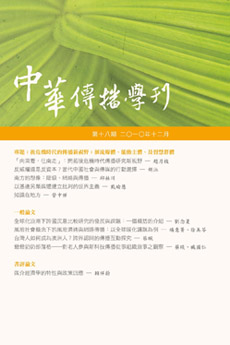 閱覽人數: 35
閱覽人數: 35
December
2010
No. 18
後危機時代的傳播新視野:滙流媒體、能動主體、及智慧群體
New Perspectives in Communication Research in the Post-Crisis Era頁數:89 - 106
作者(中)
管中祥
作者(英)
Chung-Hsian Kuang
關鍵詞(中)
本土化、民雄、全球化
關鍵詞(英)
localization, Minxiong, globalization
中文摘要
研究需要在地的累積,也需要大規模的深度訪談及田野調查,傳播科系也許可以透過對當地工人、農民的口述歷史、採集,以及對傳播行為的理解與探究等基礎研究作為在地研究的開端,或者建立系所與在地民眾的連結,向草根民眾學習,逐步地豐富傳播研究內涵,將理論與生活經驗對話,相互辯証。「向東看,往南走」的傳播研究與理論,是宣示傳媒研究重回地方知識脈絡的價值與必要,也讓學院知識份子以「向東看,往南走」為題反思東、西方知識/權力關係的同時,也別忘了地方之內還有地方,本土之中尚有本土,並且讓知識走出學院,也以在地生活及地方知識為基礎,反思與豐富各樣的傳播知識,學院知識分子對知識本土化的反思,可以從在地開始。
英文摘要
Research required the accumulation of local experiences, large-scale indepth interviews, and in the field studies. Departments of Communication can initiate local research through the collection of oral histories from workers and farmers by understanding and investigating of communication behavior. These departments can build links with local people to further learn from the grassroots people. These communication studies can be enriched by doing so. Additionally, the dialogue between theory and life experience can be made possible.
Communication study and theory with regard to the topic of “Looking East, Going South” claim the importance of communication studies referring to the context of local knowledge. Furthermore, academic intellectuals can reflect on oriental and western knowledge/power relationships through this topic, while keeping in mind the existence of small and local communities. The communication knowledge can be liberated from colleges and enrich the combination of local life and knowledge. The reflection of knowledge localization by intellectuals will have a starting point.
Communication study and theory with regard to the topic of “Looking East, Going South” claim the importance of communication studies referring to the context of local knowledge. Furthermore, academic intellectuals can reflect on oriental and western knowledge/power relationships through this topic, while keeping in mind the existence of small and local communities. The communication knowledge can be liberated from colleges and enrich the combination of local life and knowledge. The reflection of knowledge localization by intellectuals will have a starting point.